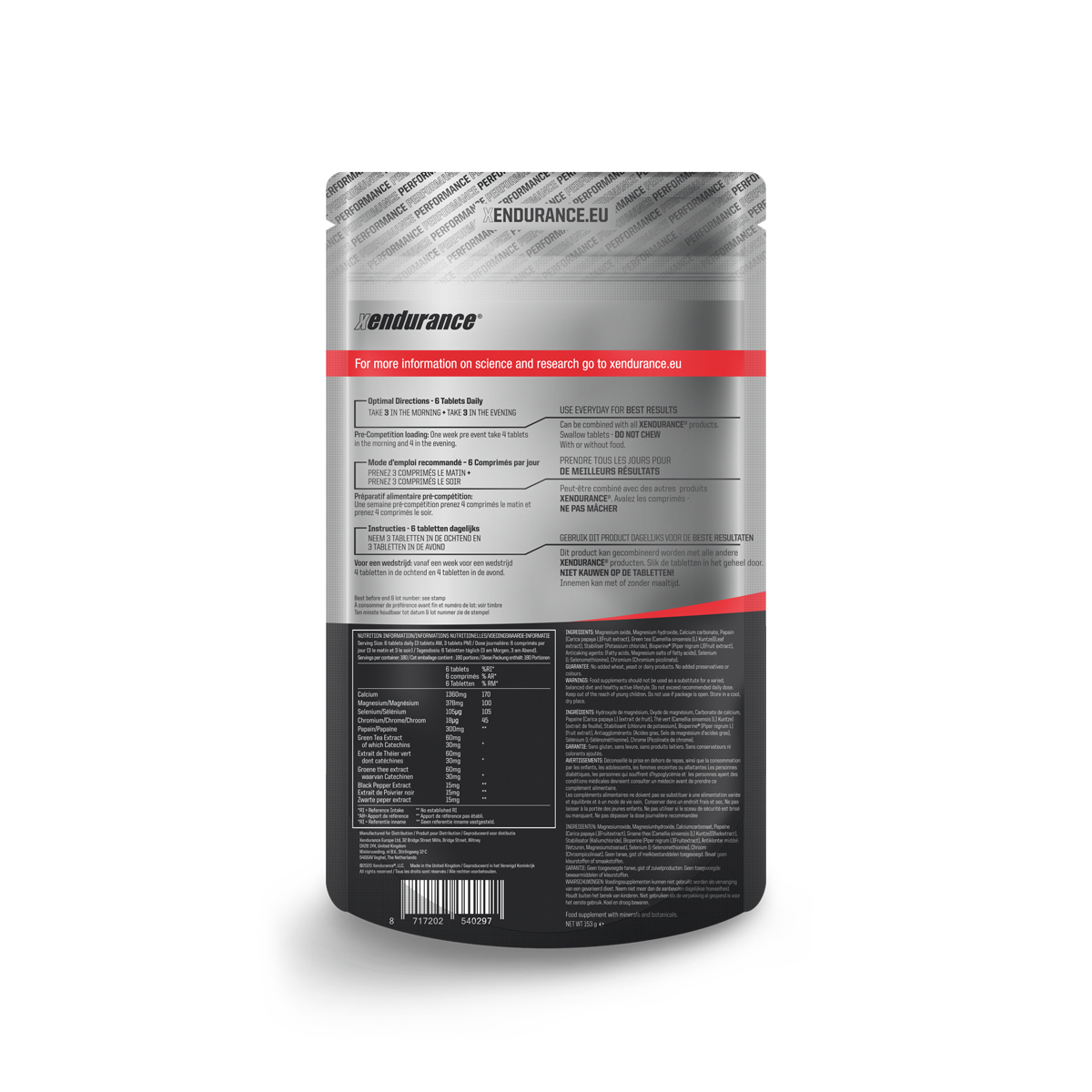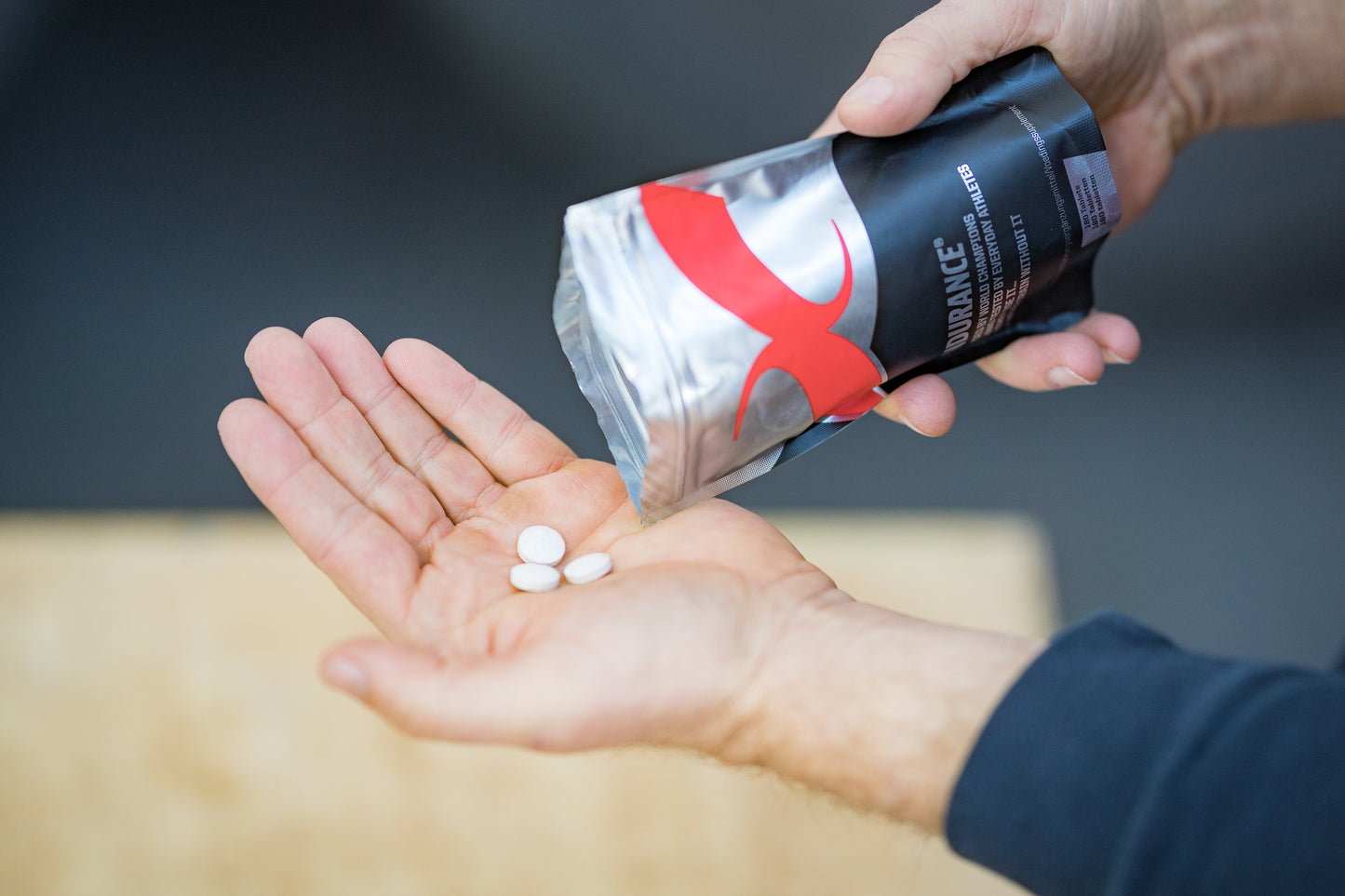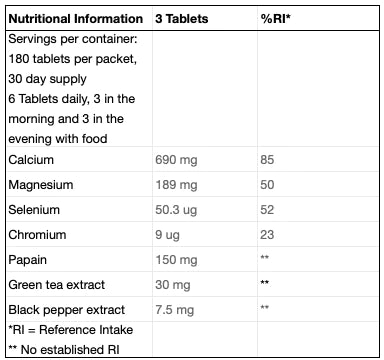Magnesium is an essential mineral that demands attention when it comes to health assessment. It is required by virtually every cell, and it’s vital in more than 300 chemical processes that sustain basic human health and function, including muscle contraction and relaxation, nerve function, cardiac activity, blood pressure regulation, hormonal interactions, immunity, bone health and synthesis of proteins, fats and nucleic acids. Magnesium is also crucial for energy metabolism by the activation of enzymes known as ATPases, which are needed to generate ATP (adenosine triphosphate).
When ATP is broken down, energy is released for all muscle contractions, and when exercising strenuously, this turnover is extremely high, meaning that ATP needs to be synthesised quickly. Thus a shortfall of magnesium can limit energy production, leading to fatigue, lethargy, reduced power, muscle twitches or cramps. Chronic deficiencies of magnesium are also implicated in reduced bone mineral density and increased risk of osteoporosis as well as anemia, depression and irregular heart rate. Virtually every body system can display symptoms because systems throughout the body rely on magnesium. Athletes in particular might find it easy to explain away fatigue or muscle cramps, lowered immunity, and even altered heart rates, and indeed these symptoms are common and multi-faceted in cause. However, a simple magnesium deficiency could also be the underlying factor.
There is emerging evidence that magnesium requirements are significantly elevated in athletes, and that performance might benefit from higher intakes. Aside from being used up in the production of energy, magnesium might also assist performance by reducing accumulation of lactic acid and reducing the perception of fatigue during strenuous exercise through its action on the nervous system. Magnesium is also lost through sweat, so athletes training hard in hot and humid environments might further increase demands.
Magnesium is not produced by the body, so it needs to be ingested daily through the consumption of magnesium-rich foods such as whole grain cereals, leafy greens, nuts and seeds or supplements such as Xendurance.
Magnesium deficiency is actually quite common—dietary surveys indicate more than 70 percent of the population consumes insufficient magnesium. This is probably because our eating habits generally rely on processed, high-starch and refined foods, which are all poor sources of this vital mineral.
Eating a variety of food will help you meet and maintain magnesium requirements, and provide you with other essential vitamins and minerals.
Pumpkin seeds are one great source of magnesium and an easy addition to any diet—add them to cereal, salads, pasta and rice dishes for extra crunch or simply eat a handful as an afternoon snack. Spinach and kale are also rich in magnesium, but some magnesium is lost through the cooking process. Some common foods might also be magnesium fortified, and certain sports foods and supplements do recognise this important mineral by including it in significant amounts. All of these sources contribute to overall requirements, so check labels to gauge your intake before turning to a supplement.
The recommended daily allowance for the general population is a minimum of 300 to 350 mg for women and 400 to 450 mg for men. Research suggests that endurance athletes can safely consume 500 to 800 mg daily, and there is debate as to whether this amount should be higher still.
Aside from poor dietary intake, there are other potentially serious factors that may cause a magnesium deficiency, such as gastrointestinal absorption problems, physical stresses such as illness or even very cold weather, alcoholism and diabetes. Additionally, medications, prescription and non-prescription, and/or other supplements can interact with magnesium and its absorption or action within the body. So it’s important to first discuss with your doctor your own circumstances and any other medical issues that may be causing your low magnesium status and whether supplementation is required in addition to eating magnesium-rich foods.
Magnesium-Rich Foods - Milligrams per 100 grams
|
Pumpkin seeds (roasted) |
532 |
|
Almonds |
300 |
|
Brazil nuts |
225 |
|
Sesame seeds |
200 |
|
Peanuts (roasted, salted) |
183 |
|
Walnuts |
158 |
|
Rice |
110 |
|
Whole-grain bread |
85 |
|
Spinach |
80 |
|
Cooked beans |
40 |
|
Broccoli |
30 |
|
Banana |
29 |
|
Potato (baked) |
25 |
|
|
|










